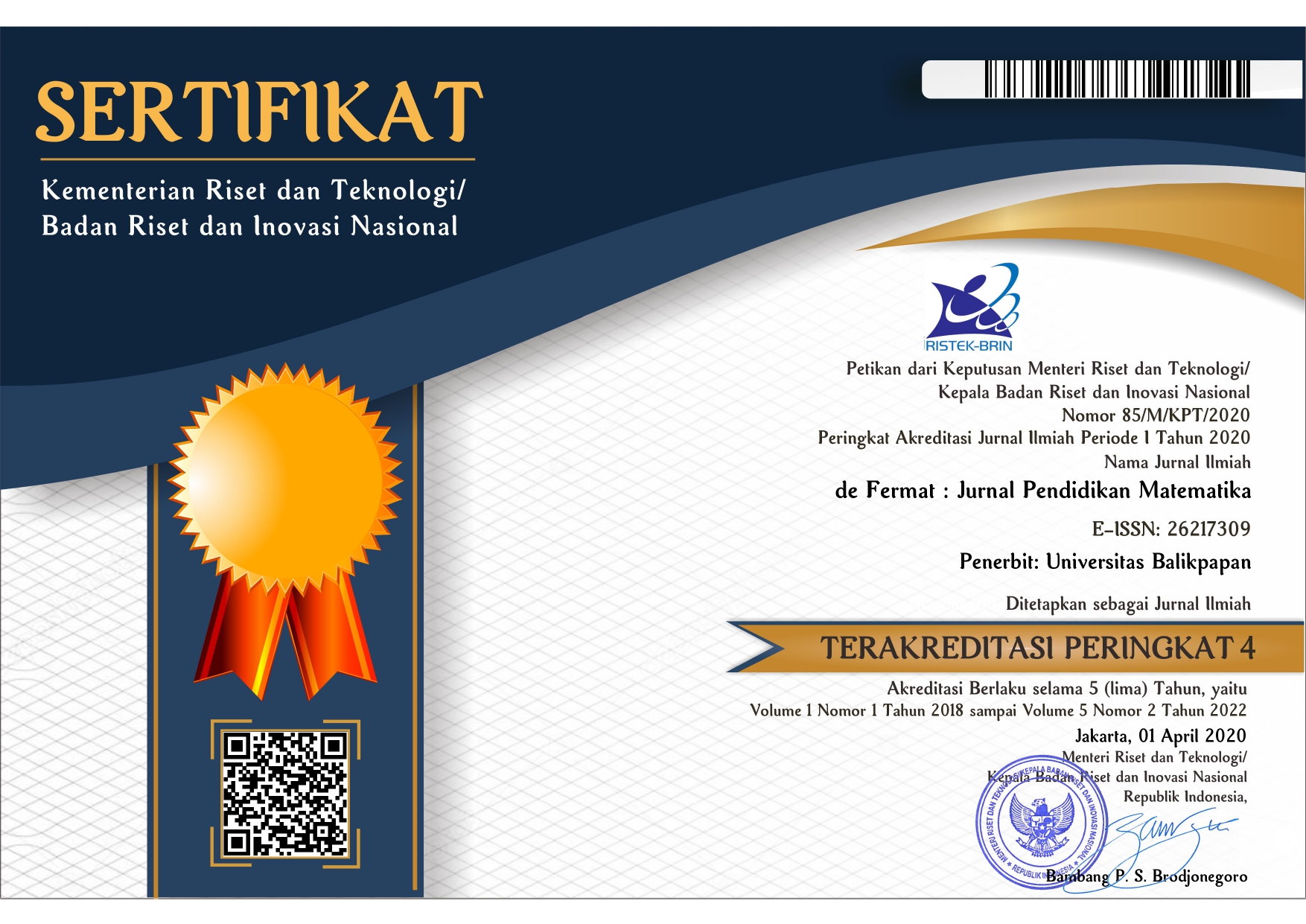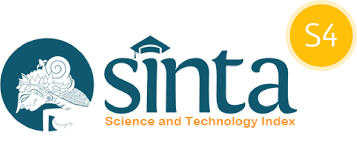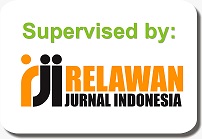THE EFFECTIVENESS OF THE USE OF THE MODULE ON THE LEARNING OUTCOMES OF COMPUTATION MATHEMATICS IN INFORMATION ENGINEERING STUDENTS
Keywords:
effectiveness, module, learning outcomes, computational mathematics, one group pretest posttest designAbstract
In computational mathematics learning which is carried out online, students experience obstacles in the process of understanding the material. The results of the UAS showed that 16 out of 30 students or 53% of students did not achieve the minimum specified learning completion, which was 75. Therefore, learning is carried out by applying modules to computational mathematics courses. Through modules, students can measure the speed and intensity of their learning and get used to learning effectively and systematically. Modules can train students to learn independently while developing literacy skills. Based on the identification of problems, research was carried out with the design of one group pretest-posttest design to find out and measure the effectiveness of the use of modules on computational mathematics learning outcomes in informatics engineering students. The study population was 30 students with saturated sampling techniques. The for pretest and posttest data is 0.58 or 57.99%, which means that the effectiveness of using modules in computational mathematics learning is in the medium category or is in a fairly effective interpretation. The result of the significance value for the with SPSS shows the significance value is 0.000. Since the significance value is less than 0.5 then rejected. Based on the results of these tests, it can be concluded that the use of modules in learning computational mathematics in students of the informatics engineering study program, FTI Unisba Blitar, has been tested effectively with the category of increasing learning outcomes being moderate.
References
Achmad, S. R., & Suparman. (2020). Design of E-Module with RME Approach to Improve the Creative Thinking Ability of Students. International Journal of Scientific and Technology Research, 9(3), 5228–5233.
Anives, J. B., & Ching, D. A. (2022). Application of Task-Based Learning Module in Mathematics V. International Journal of Educational Management and Development Studies, 3(1). https://doi.org/10.53378/352865
Aquino, H. I., & Ching, D. A. (2022). Effects of Reflective Learning Resource Material on Achievement of Mathematics Learning Outcome. International Journal of Educational Management and Development Studies, 3(1), 132–148. https://doi.org/10.53378/352866
Aulia, E. T., & Prahmana, R. C. I. (2022). Developing Interactive E-Module Based on Realistic Mathematics Education Approach and Mathematical Literacy Ability. Jurnal Elemen, 8(1), 231–249. https://doi.org/10.29408/jel.v8i1.4569
Costa, E. J. F., Campos, L. M. R. S., & Guerrero, D. D. S. (2017). Computational Thinking in Mathematics Education: A Joint Approach to Encourage Problem-Solving Ability. Proceedings - Frontiers in Education Conference, FIE, 1–8. https://doi.org/10.1109/FIE.2017.8190655
Daniel, S. J. (2020). Education and The Covid-19 Pandemic. Prospects, 49, 91–96. https://doi.org/10.1007/s11125-020-09464-3
Febrianto, P. T., Mas’udah, S., & Megasari, L. A. (2020). Implementation of Online Learning During The Covid-19 Pandemic on Madura Island, Indonesia. International Journal of Learning, Teaching and Educational Research, 19(8), 233–254. https://doi.org/10.26803/ijlter.19.8.13
Febrinita, F., & Puspitasari, W. D. (2021). The Perceptions of Information Technology Faculty Students on Online Laerning of Computational Mathematics During The Covid-19 Pandemic. Jurnal Math Educator Nusantara, 7(2), 172–186. http://ojs.unpkediri.ac.id/index.php/matematika/article/download/235/150
Febrinita, F., Puspitasari, W. D., & Kirom, S. (2019). Pengembangan Modul Matakuliah Statistika yang Terintegrasi dengan Microsoft Excel dan SPSS Menggunakan Pendekatan Kecerdasan Linguistik. Pi: Mathematics Education Journal, 2(2), 88–97.
Perdana, F. A., Sarwanto, S., Sukarmin, S., & Sujadi, I. (2017). Development of e-Module Combining Science Process Skills and Dynamics Motion Material to Increasing Critical Thinking Skills and Improve Student Learning Motivation Senior High School. International Journal of Science and Applied Science: Conference Series, 1(1), 45–54. https://doi.org/10.20961/ijsascs.v1i1.5112
Sadiq, S., & Zamir, S. (2014). Effectiveness of Modular Approach in Teaching at University Level. Journal of Education and Practice, 5(17), 103–109.
Saragih, S., Markus, T., Rhian, P., & Setiawan, S. (2021). Eksplorasi Kesiapan Dosen Dan Mahasiswa Menjalani Pembelajaran Jarak Jauh Di Masa Pandemi Covid-19. Kwangsan: Jurnal Teknologi Pendidikan, 9(1), 124. https://doi.org/10.31800/jtp.kw.v9n1.p124--141
Schneider, S. L., & Council, M. L. (2021). Distance Learning in The Era of Covid-19. Archives of Dermatological Research, 313, 389–390. https://doi.org/10.1007/s00403-020-02088-9
Telaumbanua, Y. N., Sinaga, B., Mukhtar, & Surya, E. (2017). Development of Mathematics Module Based on Metacognitive Strategy inImproving Students’ Mathematical Problem Solving Ability at High School. Journal of Education and Practice, 8(19), 73–80. https://www.researchgate.net/publication/318983738















